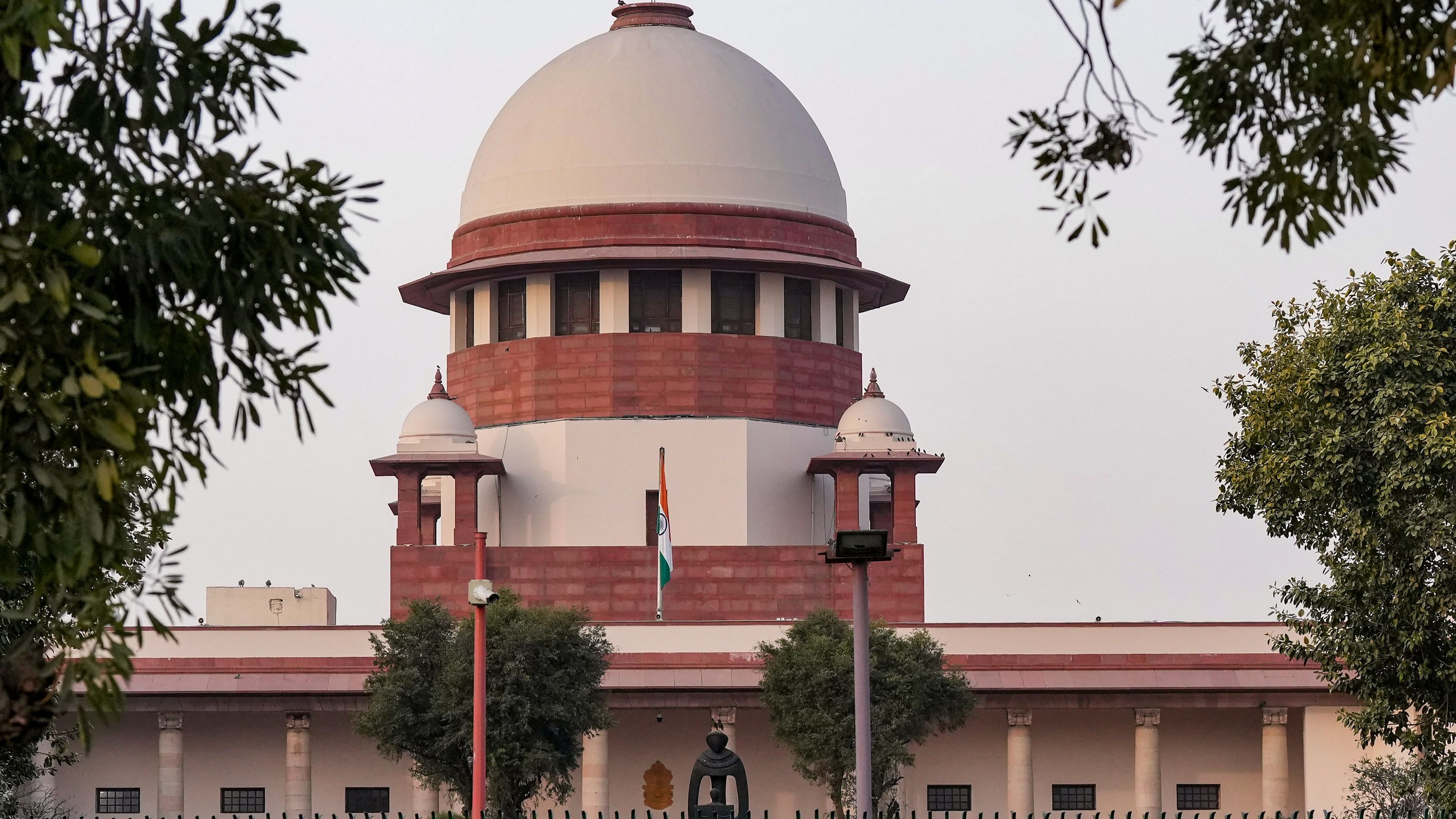
The Supreme Court of India.
Credit: PTI File Photo
New Delhi: The Supreme Court's nine-judge Constitution bench is set to render its judgment on Tuesday on a critical issue related to the extent of the State’s power to acquire private property for public good.
The bench led by Chief Justice of India D Y Chandrachud would decide whether private properties can be considered "material resources of the community" within the meaning of Article 39(b) of the Constitution and if those properties can be taken over by the State to subserve the common good.
The bench had reserved its judgment in the matter on May 1.
The other judges in the bench are Justices Hrishikesh Roy, B V Nagarathna, Sudhanshu Dhulia, J B Pardiwala, Manoj Misra, Rajesh Bindal, Satish Chandra Sharma, Augustine George Masih.
The question before the bench was whether privately owned property are covered under the ambit of “material resources of the community”, under Article 39(b) of the Constitution.
Article 39(b) enjoined the State to endeavor “that the ownership and control of material resources of the community, are so distributed as best to subserve the common good”.
The issue also involves interpretation of Article 39(c) which says “the operation of the economic system does not result in the concentration of wealth and means of production to the common detriment”.
The case arose out of law in Maharashtra that allows a state undertaking (MHADA – Maharashtra Housing and Development Authority) to acquire certain private properties under Chapter VIII-A of the MHADA Act 1976. The acquisition of the private properties could be for better preservation of the said property/building or for reconstruction/repairs etc.
The petitioners led by Property Owners Association argued that “material resources” of a community does not include private resources and Article 39(b) talks only of public resources or national resources as only these resources can be redistributed by the State to subserve the greatest common good.
The Union government and MHADA, on the other hand, argued against a restrictive interpretation of Article 39(b).
They contended that the principle of ‘common good’ and the ideals of the Constitution, which is to ensure ‘distributive justice’ and achieve socialist egalitarian goals of distribution of resources would stand defeated if privately held properties are kept outside the ambit of Article 39(b).
